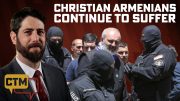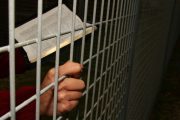
The spokesman for Philippine president Rodrigo Duterte said his boss’s order from last week, in which he called on the military and police to kill “all” armed communist terrorist forces in the country, is “legal” — amid outcry from the Left.
“The president’s ‘kill, kill, kill’ order is legal because he directed … [it] at the rebels holding weapons,” said Duterte spokesman Harry Roque during a March 8 press briefing.
“Under the IHL [International Humanitarian Law], the president’s ‘kill, kill, kill’ order is right because if there is an armed conflict, when your enemy has a gun and can kill you, you wouldn’t wait to get shot and killed,” he told journalists, adding:
“It is not against the law, the international humanitarian law, when a soldier shoots an armed NPA fighter and kills the NPA fighter,” in reference to the New People’s Army (NPA), the armed wing of the Communist Party of the Philippines.
The Philippine government officially recognizes the NPA as a terrorist organization, as do the United States and United Nations. The Philippines has been fighting the communists’ violent insurgency since in the countryside for decades. Over 30,000 lives have reportedly been claimed in the conflict.
“I’ve told the military and the police, that if they find themselves in an armed encounter with the communist rebels, kill them, make sure you really kill them, and finish them off if they are alive,” Duterte said Friday while addressing the National Task Force to End Local Communist Armed Conflict (NTF-Eclac), a task force he created to bring an end to the insurgency by the end of his presidency in 2022.
Telling security forces to “just make sure to return their bodies to their respective families,” Duterte added:
“Forget about human rights. That’s my order. I’m willing to go to jail, that’s not a problem.”
Nine people have been killed since Duterte made the comments.
The Philippine president has called communist rebels the “number one threat” to national security. His policies have earned him the scorn of the Left and of “human rights” organizations. Among these policies is offering a $384 bounty “per head” of every rebel killed.
Duterete’s critics argue that he is inciting violence against political opponents, journalists, and activists by labeling them “communists” in order to tie them to the NPA.
Teddy Casino, a former member of Congress and an activist, wrote on social media: “This is madman levels. Not even Marcos was this openly brazen and brutal.” The statement referred to the late Philippine dictator, Ferdinand Marcos, whom Duterte looks up to.
Carlos H Conde of Human Rights Watch accused Duterte of “incendiary rhetoric,” stating:
“Duterte’s pronouncements normalise the idea that government security forces can do as they wish to defeat their enemies — including committing summary executions.”
The Philippine president has regularly taken flak for his off-the cuff jokes and statements, such as saying that female rebels should be shot in their genitals.
He has also been criticized by the media and international organizations for his war on drugs, under which he has urged citizens to kill drug dealers.
Duterte famously called then-U.S. President Barack Obama a “son of a w****” in 2016 as a warning for him not to criticize the Philippine war on drugs. He had a better relationship with President Trump, who, in Duterte’s opinion, deserved to be reelected in 2020.
“It is President Trump’s circumspect and judicious reaction to the termination of the VFA that made President Duterte give the following remarks: ‘President Trump is a good president and he deserves to be re-elected’,” presidential spokesman Salvador Panelo said in a statement last month.
This was in reference to the fact that President Trump did not mind the Philippines ending the Visiting Forces Agreement (VFA), a decades-old agreement that set out rules for American soldiers operating in the Pacific nation.
The spotlight on Duterte’s war on violent communists comes as the U.S. has in recent months seen its share of violent assault by left-wing groups such as Antifa and Black Lives Matter on public and private property, police, and private citizens.
FBI Director Christopher Wray, however, has said that Antifa is an ideology, not an organization.





